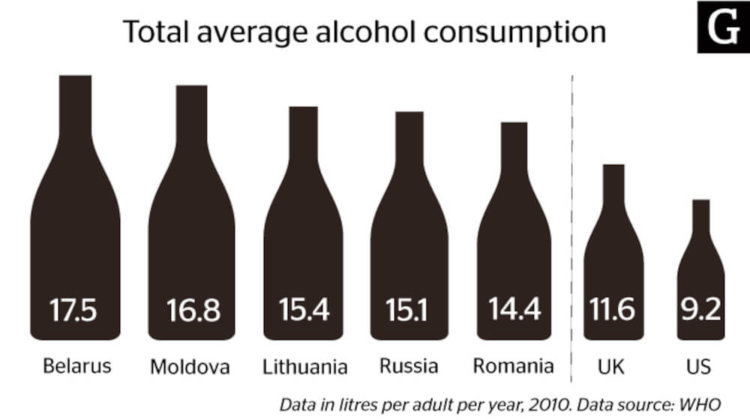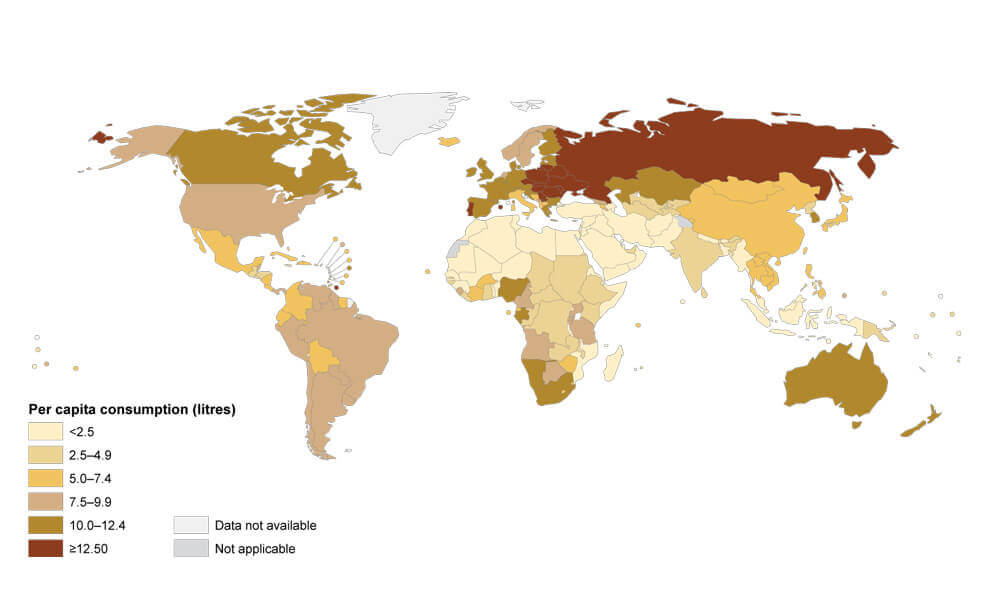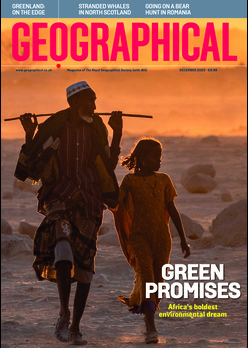
A World Health Organization report has revealed the world’s highest consumers of alcohol
By Chris Fitch
It may not be a surprise that countries such as Belarus (17.5 litres per adult per year), Moldova (16.8 litres), and Lithuania (15.4 litres) top the global table of alcohol consumption when measuring entire populations, but there are some interesting results to be found when you dig into the data a little deeper.
Russia and Romania complete the top five, while the UK and the US rank 25th and 49th respectively, behind many other European countries such as Ukraine (13.9 litres), Andorra (13.8 litres), and Finland (12.3 litres).

The following map, from the WHO report, shows how the world’s highest consumers of alcohol are largely gathered together in Eastern Europe and across the former Soviet Union, while Islamic countries such as Indonesia and those across the Middle East have, understandably, some of the world’s lowest alcohol consumption:

However, the picture changes dramatically when abstainers, those adults who never drink alcohol, are removed from the data. When measuring alcohol consumption just amongst those people who actually drink the stuff, an entirely new set of countries climb to the top: Chad, the UAE, The Gambia, Tajikistan and Mali.
These five countries – whose average alcohol consumption when including non-drinkers is only 4.4 litres, 4.3 litres, 3.4 litres, 2.8 litres and 1.1 litres respectively – illustrate the impact religion has on national data such as this. All five are predominantly Islamic states, and the majority of their populations never drink alcohol. Therefore those few individuals who do drink alcohol, disproportionally affect the data.

Chad also has an exceptionally high proportion – 91 per cent – of its alcohol consumption officially listed as ‘unrecorded’, a figure beaten globally only by Nepal’s 92 per cent. The WHO defines unrecorded alcohol as ‘alcohol that is not taxed in the country where it is consumed because it is usually produced, distributed and sold outside the formal channels under government control’. The report estimates unrecorded alcohol to make up nearly a quarter (24.8 per cent) of total worldwide alcohol consumption.
The report also draws attention to the interestingly varying worldwide definitions for what constitutes an alcoholic drink. Fifty-four countries, including Australia, Ireland, and the USA, define alcoholic beverages as anything containing more than between zero and one per cent alcohol by volume, while for 28 other countries – including France, Germany and New Zealand – it is anything up to two per cent and over. Interestingly, the two countries top of the above global rankings also have the highest required alcohol by volume definitions; over 5.2 per cent for Chad, and over 7 per cent in Belarus. The UK, meanwhile, has no legal definition.




